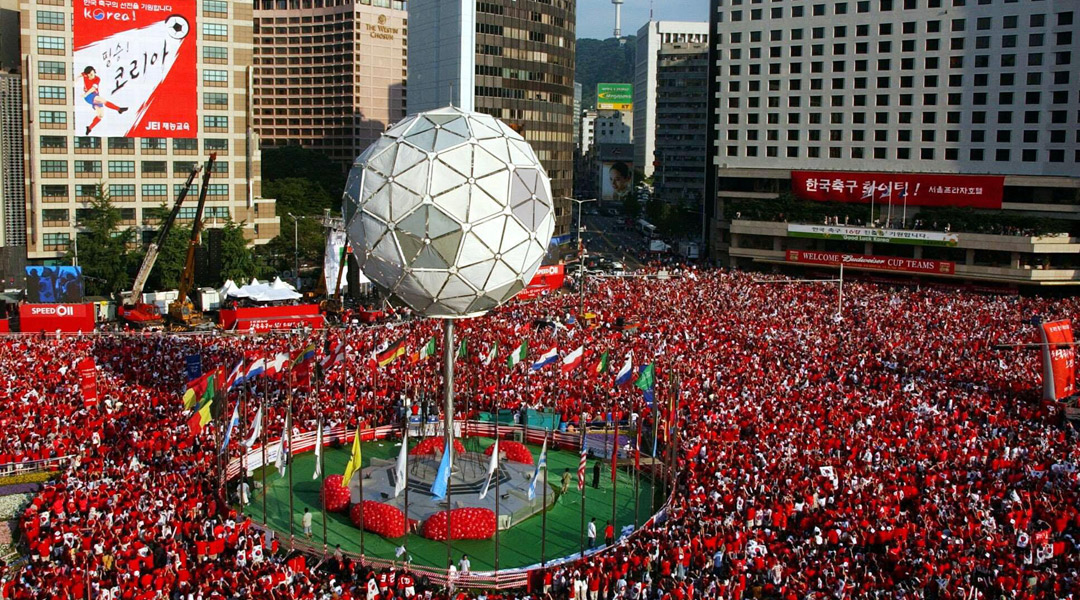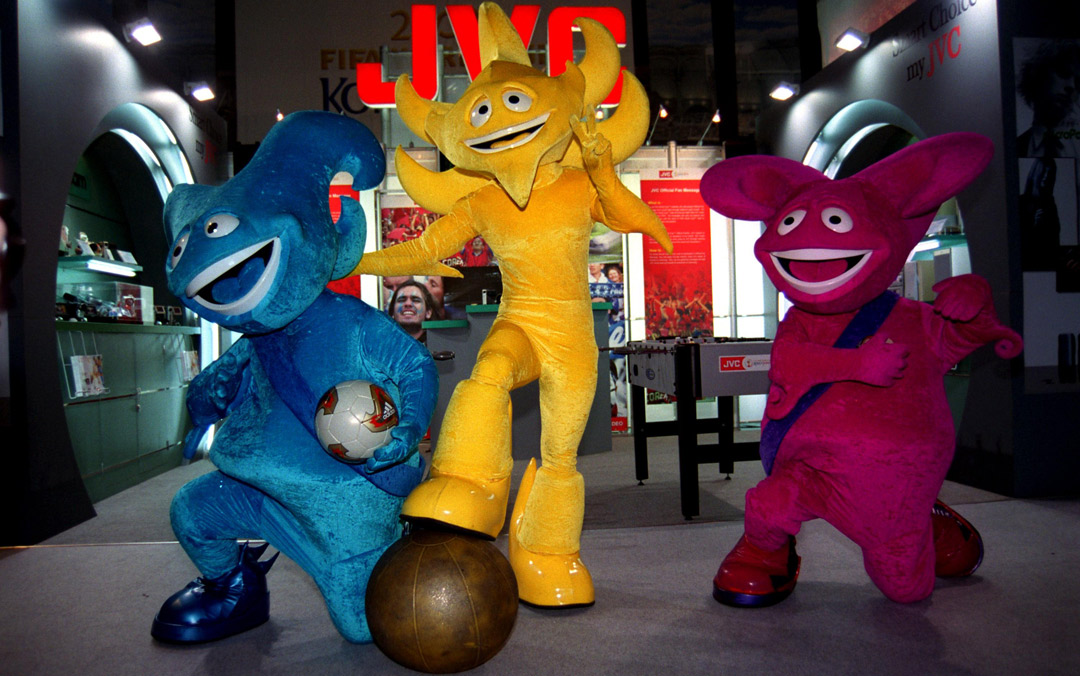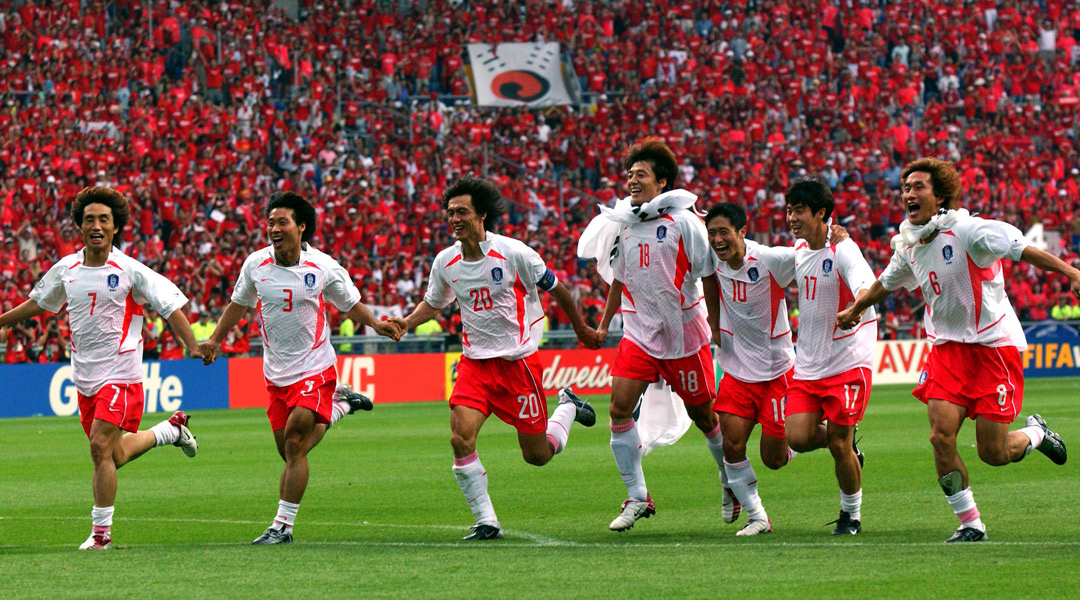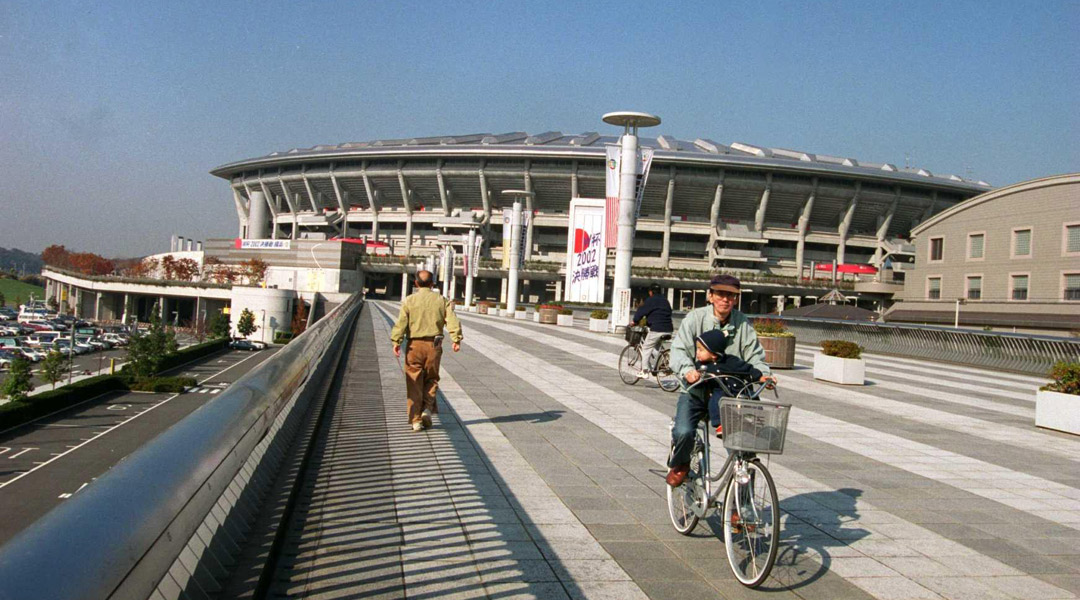Korea and Japan 2002: the tournament defined by pernickety politics, reffing raps and brilliant Brazilians
The first co-hosted World Cup, not least making its debut in Asia, provided an unforgettable blend of political aggro, on-pitch scandal and shocks aplenty. Louis Massarella explains

2002 was a World Cup of firsts. It was the first tournament staged outside of Europe and Latin America – which, in the name of diplomacy, had hosted alternate World Cups since 1958 – the first time five continents had been represented at the quarter-final stage and, most significantly, the first time the competition had been co-hosted.
Japan/South Korea, (or South Korea/Japan, more of which shortly), was well organised and well attended off the pitch, and full of intrigue and incident on it, but it was hardly a love-in between the Far Eastern foes.
China had initially been FIFA’s preferred Asian candidate, but concerns over human rights and logistics led to Japan and South Korea taking up the mantle, and the two were involved in a bidding war until Japan reluctantly agreed to join forces when it looked like Mexico might come up on the rails. “It was the appropriate political decision,” said FIFA delegate Alan Rothenberg, when results of the vote were announced in 1996. “If it works, it will be very important for the World Cup to be co-hosted by two countries without a great history of friendship.”

Indeed, Japan’s brutal 35-year occupation of the Korean peninsula in the first half of the 20th century left understandable resentment, with subsequent apologies by Japanese governments deemed to be half-hearted by many Koreans. FIFA’s idealistic view that football could “make a difference” proved misguided, not least because the two countries ran separate organising committees.
Once numerous logistical details had been ironed out and Japan had been rumbled for changing the tournament’s official slogan to read ‘2002 World Cup Japan/Korea’ in Japanese instead of Korea/Japan, as had been agreed (in return for Japan hosting the final), it became a “competition” over who could, as one politician put it, “do it better than you can”. This game of one-upmanship at least made for first-class stadia and infrastructure; now it was up to the participants to provide the drama.
Shocks and shame
And provide it, they did – before a ball had even been kicked in anger, in fact, with the pre-tournament narrative provided by David Beckham’s race to be fit for England, and Roy Keane’s bust-up with Republic of Ireland manager Mick McCarthy, leading to the captain’s walk out.
Get FourFourTwo Newsletter
The best features, fun and footballing quizzes, straight to your inbox every week.
Elsewhere, it appeared to be the World Cup that had everything, from stories of redemption (Beckham against Argentina, Ronaldo’s return from injury to lay the ghosts of the 1998 final to rest) and farce (Rivaldo’s dive against Turkey), to great goals, games and gaffes – not to mention extreme controversy.
But above all, this was a World Cup of shocks, kicking off with Senegal’s opening-game victory over France, echoing Cameroon’s win against Argentina at Italia 90.
With Zinedine Zidane injured, even when he returned for the final group game, the holders exited in the first round, as did co-favourites Argentina and highly fancied Portugal. Germany’s march to the final was equally unlikely, inspired by Michael Ballack and Oliver Kahn after they’d required a play-off just to qualify for the tournament.
Then there was South Korea. While Japan ensured fervent home support by topping their group before bowing out to would-be surprise semi-finalists Turkey in the second round, the Red Devils took World Cup fever to new levels, sparking memorable scenes in the stands and streets of the country in reaching the semi-finals.
Well drilled by Dutchman Guus Hiddink and with levels of energy that belied the often-stifling conditions, the co-hosts were nevertheless the beneficiaries of some of the dodgiest officiating the World Cup has ever seen, particularly in the knockout stages.

Ahn Jung-Hwan’s Golden Goal winner in the Round of 16 famously led to his sacking by club Perugia, but not before Italy had a perfectly legitimate winner of their own disallowed for offside and Francesco Totti was wrongly sent off for diving by a referee who was later suspended for adding 13 minutes of injury time to a game in his homeland and jailed for drug smuggling. Spain – and the world’s media – were equally outraged at their quarter-final loss to the Koreans on penalties, after having two goals incorrectly disallowed.
Too much controversy?
In the end there were too many shocks for some purists, who complained that it led to a lack of genuine quality in the latter stages. They had a point. The only big guns to live up to their billing were Brazil, and even they had struggled through qualifying. But with solid defence and the three Rs – Rivaldo, Ronaldinho and eight-goal top scorer Ronaldo – on top form, they made a mockery of their ‘outsiders’ tag.
It was a popular victory in Brazil-mad Japan, but the overall impact of the World Cup was felt more positively in South Korea. “The 2002 World Cup finals were a defining period for today’s younger players,” said the country’s all-time top scorer, Cha Bum-kun, the first South Korean to thrive abroad with a successful decade in the Bundesliga spanning most of the 1980s.
“Our team showed the kids they could be a match for the Europeans and South Americans. It boosted the confidence of an entire generation. They’re not afraid to try their luck abroad now and feel they’re good enough to compete in European club football.”

And while the majority of South Korea’s stadiums were used by club sides after the tournament, Japan’s inability to fill theirs led to local authorities using smaller, purpose-built grounds for J-League games. “They did not have a [post World Cup] strategy,” admitted one member of Japan’s World Cup bidding committee, leading to six out of 10 stadiums losing millions every year.
The same could be said for only a small minority of South Korea’s venues, helped by a far greater footballing pedigree in the country. The Red Devils have reached every World Cup finals since 1986, while Japan only qualified for the first time in 1998. The J-League was only established in 1993, a decade after the K League. And while the popularity of the game in Japan certainly increased since 2002, with a thriving youth system helping to provide a number of household names – more, in truth, than South Korea – baseball remains the most popular team sport.
Undoubtedly the greatest legacy of 2002, though, was the fact that it would be the last time a World Cup was co-hosted – for the foreseeable future, at least. FIFA even officially prohibited co-bids in 2004 – an admission of a failed experiment if ever there was one and proof, if it were needed, that sport and politics don’t mix.
